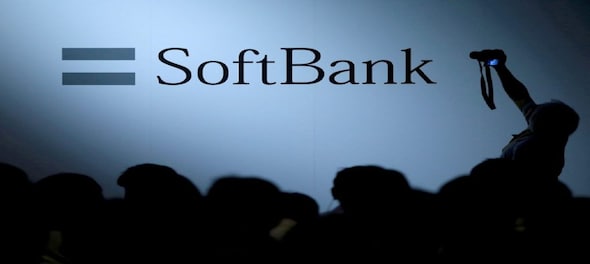
SoftBank, a global technology conglomerate, has taken an unexpected hit in its financial performance during the first quarter spanning April to June. Despite reaping benefits from its extensive tech-focused Vision Fund investments, the company reported an unforeseen net loss attributable to owners of the parent, totaling a significant 477.6 billion yen ($3.3 billion).
This loss was markedly distant from a previously projected Refinitv analyst estimate of a 75 billion yen profit. Nonetheless, it marked a considerable improvement compared to the previous year's same period, which had seen a steep loss of 3.16 billion yen.
SoftBank has been a prolific investor in Indian startups over the last decade, investing close to $15 billion. Most of these investments have happened in the recent past. Through its Vision Fund, SoftBank has invested in companies like e-commerce major Flipkart, Blinkit, Cars24, FirstCry, Lenskart, Meesho, OYO, Paytm, Policybazaar, and Swiggy, among others.
Vision Fund, which is closely monitored as an indicator of the tech sector's health, turned the tide by securing an investment gain of 159.8 billion yen ($1.1 billion). This marked the fund's first positive quarter in five consecutive quarters. The gains were derived from strategic investments in shares of the company's subsidiaries, including the renowned chip design giant, Arm.
SoftBank's financial landscape was also shaped by its ongoing efforts to regain footing following last year's technology share meltdown. The company has been divesting its stake in Alibaba, a move driven by its desire to counterbalance the previous year's losses. While SoftBank experienced an unrealised valuation loss of 553.4 billion yen on Alibaba shares, this was partially offset by a derivative gain of 769.9 billion yen.
The previous quarter had seen SoftBank's Vision Fund investment arm facing a substantial loss of $32 billion, attributed to investments in technology giants like Uber and Coupang. Despite fully exiting its stake in Uber, the company continued to grapple with losses stemming from investments in entities like the Chinese AI firm SenseTime and Indonesian ride-hailing and e-commerce company GoTo.
The tech conglomerate's trajectory has been punctuated by strategic shifts, including pausing new investments and reducing its holdings in major players like Alibaba and Uber. Investors remain keenly interested in assessing how SoftBank navigated the surges in technology stock values over recent months. With the likes of Alphabet and Amazon witnessing share price hikes, there is a palpable anticipation of a potential end to the prolonged ascent of interest rates.
Of particular significance is the examination of SoftBank's gains from the surging demand for artificial intelligence, coinciding with the rise of AI chatbot ChatGPT, owned by OpenAI. While the company refrained from new investments amid challenging market conditions, it remains vocal about capitalising on the ongoing "AI revolution."
In a June shareholder meeting, CEO Masayoshi Son communicated the company's shift from "defense mode" to "offense mode." Reflecting on the past years, Son highlighted their transition from a cash-strapped position to amassing a substantial 5 trillion yen ($35.3 billion) on hand. This accumulation has primed them to pivot toward an offensive approach, a move he expressed excitement about.
Simultaneously, industry observers eagerly await SoftBank's commentary on the impending initial public offering of Arm, a chip design firm the company acquired for $32 billion in 2016. SoftBank had initially planned to sell Arm to Nvidia for $39 billion, but regulatory concerns prompted the cancellation of the deal.
Chief Financial Officer Yoshimitsu Goto revealed that SoftBank holds a stable of companies poised for IPOs, collectively valued at $37 billion. However, he refrained from disclosing specific names. SoftBank's Vision Fund 1 and Vision Fund 2, spearheaded by founder Son, are dedicated to high-growth stock investments. Despite encountering challenges due to escalating global interest rates, both funds have proven resilient, overcoming market headwinds.
SoftBank's investment history reflects a mix of successes and setbacks. Notably, the company supported the US office rental startup WeWork, which was once valued at $47 billion but ultimately required a devaluing rescue operation. Additionally, SoftBank's involvement with crypto exchange FTX resulted in losses after the exchange faced fraud charges.
— With inputs from CNBC
First Published: Aug 8, 2023 2:36 PM IST
Check out our in-depth Market Coverage, Business News & get real-time Stock Market Updates on CNBC-TV18. Also, Watch our channels CNBC-TV18, CNBC Awaaz and CNBC Bajar Live on-the-go!



